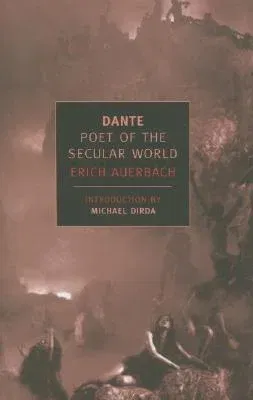Erich Auerbach
(Author)Dante: Poet of the Secular WorldPaperback, 16 January 2007

Qty
1
Turbo
Ships in 2 - 3 days
In Stock
Free Delivery
Cash on Delivery
15 Days
Free Returns
Secure Checkout

Part of Series
New York Review Books (Paperback)
Print Length
208 pages
Language
English
Publisher
New York Review of Books
Date Published
16 Jan 2007
ISBN-10
1590172191
ISBN-13
9781590172193
Description
Product Details
Author:
Book Format:
Paperback
Country of Origin:
US
Date Published:
16 January 2007
Dimensions:
20.29 x
12.78 x
1.27 cm
ISBN-10:
1590172191
ISBN-13:
9781590172193
Language:
English
Location:
New York, NY
Pages:
208
Publisher:
Weight:
226.8 gm